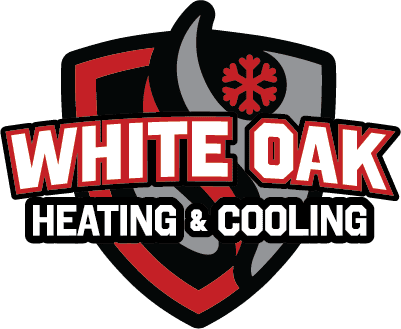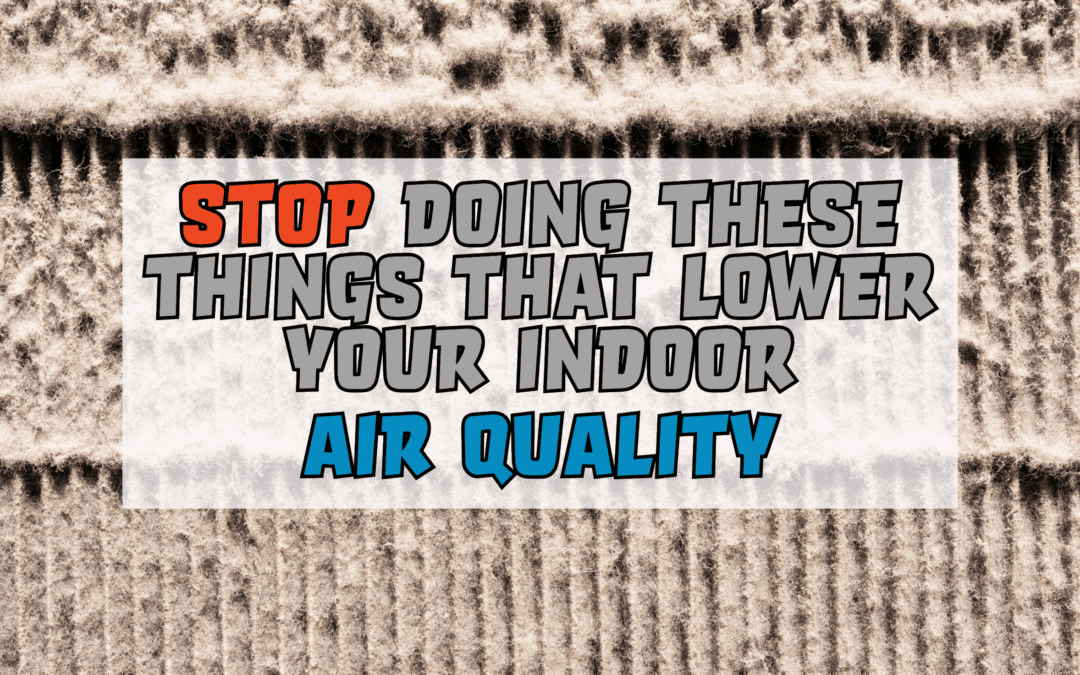Homeownership entails a lot of responsibility, and one of the most crucial tasks you’ll have is to upkeep your house’s heating, ventilation, and air conditioning (HVAC) system. It’s critical for homeowners to have a basic understanding of how their home’s HVAC system works. Homeowners must have a basic knowledge of how their residence’s HVAC works. After all, this is what keeps you comfortable throughout the year! To help, our knowledgeable and trusted technicians at White Oak Heating & Cooling have put up a list of three essentials that every homeowner should know about their HVAC system for it to live its best and longest life.
1. What Does the Acronym HVAC Stand for?
There are three basic functions of your home’s climate control system, aka your HVAC system, including heating, ventilation, and air conditioning. These three functions work together to ensure that the temperature and humidity in your house are suitable all year round. Keep in mind that heating refers to the use of heat to raise the temperature of a space so that it may be made warmer, while ventilation refers to the exchange or refreshment of air within your house, and air conditioning refers to cooling a place using refrigeration equipment. Therefore, it is essential to understand the function of each of these functions to gain more insight into how your HVAC system keeps your home at your optimal comfort level, regardless of the temperature outside.
2. How Many Types of HVAC Systems Are There?
As of today, there are four main types of HVAC systems. This includes a split, hybrid, duct-free, and packaged system. Figuring out which HVAC system is suitable for your home depends on several factors such as the type of HVAC system that is appropriate for your house will be determined by a variety of criteria such as the size of your home, the climate you reside in, and your personal heating and cooling preferences. Below are mini descriptions of each system to get you as a homeowner thinking about which system is best for you, your home, and your family.
- Split System: The most popular HVAC system in the United States is a Split System. It comprises of an outdoor condenser and compressor unit, as well as an indoor evaporator coil unit. They can also be used for both heating and cooling, and they come in a variety of varieties, including single-stage, two-stage, and variable speeds.
- Hybrid System: A Hybrid System is a type of split system that uses both an electric heat pump and a gas furnace to heat your home. This system is beneficial for homeowners living in mild winters because it will save you money on your energy bill as the electric heat pump is more efficient than the gas furnace.
- Duct-free Systems- Or commonly known as mini-split systems, don’t use ductwork to distribute air throughout the house. Instead, they feature tiny independent units that are mounted on walls or ceilings. Duct-free systems are an excellent choice for properties without existing ductwork or who want to improve their homes’ overall energy efficiency.
- Packaged System- This system is similar to a split/hybrid system; however, the major difference is that all of the components are housed in a single unit. This sort of system is typically placed on the roof or on a concrete slab adjacent to the property. Because they take up less room, they’re an excellent choice for houses with little space for an HVAC system.
3. How Do I Maintain My HVAC System?
It is critical to conduct regular maintenance on your HVAC system in order for it to function properly and efficiently. Some procedures are simple enough for the average homeowner to do, such as regularly checking and changing the air filter. However, it is advisable to have a professional HVAC technician come and inspect your system at least once a year to ensure that everything is working as it should be. A few other things for homeowners to be mindful of include:
- Keeping the area around your outdoor unit clean of debris and vegetation. This will aid in preventing the unit from overworking and enhancing airflow.
- If you have a central air conditioner, check the evaporator coils for cleanliness. Dirty coils may cause the system to work harder than necessary, which can lead to higher energy bills.
- Check all ductwork for leaks and seal any that are found. If you notice a spike in your monthly utility bill, then leaks in your ductwork could be the culprit. Leaks, holes, or gaps can cause your system to work less efficiently and can also lead to higher energy bills.
By learning how your house’s HVAC system works, you may help it last longer and operate properly for many years to come. It’s critical to have your residential HVAC system serviced at least once a year by a professional. Additionally, by being proactive and conducting regular maintenance on your system, you may avoid more extensive, costly repairs down the line.
If you have any questions about your HVAC system or would like to schedule a service appointment, contact White Oak Heating & Cooling today at (513) 342-8434, or schedule an appointment online now by clicking here! We’re happy to help you keep your home comfortable all year long!







